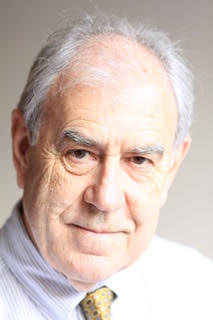RICHARD BUTLER. Admiral Harris is not coming: does it matter?
April 25, 2018
The decision by incoming US Secretary of State Pompeo, to withdraw the nomination of Admiral Harry Harris as US Ambassador to Australia, is something within his gift. Julie Bishop and Malcolm Turnbull had fervently welcomed the proposed appointment. Presumably she and Malcolm Turnbull will now formulate ways in which to suggest that its of no particular consequence. Is it or does it reflect what America really thinks of us?
Secretary of State designate, Pompeo, has decided that hed prefer Admiral Harris to be sent as US Ambassador to Korea, rather than Canberra. This seems to reflect a judgment that the skills the Admiral has would be more usefully deployed on the Korean issues, than in Australia.
There are obvious degrees of difference between the hardball issues at stake in the Korean peninsula and what are clearly seen in Washington as the softball issues in Canberra.
This is not hard to understand, although it does underline US assumptions about Australias enduring role in the alliance, our joined at the hip relationship, which is of our own making.
In Canberra, in the political sphere, Admiral Harris would have had a care and maintenance role. But, in the defence and security sphere, a definite brief to advance the interests of US arms industries, under the mantra of the need for interoperability of the two countries armed forces.
Some commentators in both the US and Australia, have already noted that this decision demonstrates that the US places more importance on Korea than Australia. In this insight, theres more than a touch of re-inventing the wheel.
In addition to it ignoring the very substantial differences between the job to be done in Seoul and Canberra, already referred to, it also implies that there is great importance in the personal backgound and characteristics of the person nominated to be US Ambassador to Australia.
Given the US track record on this, that assumption has been questionable. Only once in the post Vietnam War period has the US sent a professional diplomat as its Ambassador to Canberra and that person, Marshall Green, was sent by Richard Nixon to watch over the allegedly deeply alarming Prime Ministership of Gough Whitlam. The other appointees were so called political appointees; persons who had made contributions to the Presidents political campaigns or business interests.
Harris proposed appointment underlined the continuing militarization of foreign policy in both Washington and Canberra. Its not clear that its withdrawal will prove to be our loss, although we have no idea who will now be nominated and, when the convoluted process involved in Washington, will be completed.
As an aside, the US machinery in Seoul will likely face particular challenges, beyond those of managing the inter- Korean discussions and the planned US/DPRK Summit . With two senior US military figures on the playing field in Seoul: the US military Commander and, Ambassador Admiral Harris. Who will have the last word?
On a personal note, in 1989 Foreign Minister Hayden nominated me to be High Commissioner to Canada. Canada indicated acceptance of this. Then Gareth Evans was appointed Foreign Minister. He withdrew that nomination and appointed me Ambassador to Thailand, instead. He indicated that he wanted priority to be given to finding a peace settlement in Cambodia. He wanted me to assist in this, from Bangkok; we had not had an Ambassador in Cambodia for 15 years, because of the war and the Khmer Rouge period. The peace settlement was reached, in 1991,on the basis of the Evans plan.
Evans achievement then was remarkable. It demonstrated the fundamental importance of clear policy and determined diplomacy. The character of the next US Ambassador to Australia will matter, but its the policy of both Washington and Canberra will matter far more.
Admiral Harris has indicated his belief that we will all, someday, have to fight China. He has his supporters in Canberra. Rather than be distracted by what it means that he will not now be coming to live with us; what this change in decision in Washington means about how it ranks Australia; we need far more cogently, to focus on our policies towards China and the Alliance.
Richard Butler AC served as Australian Ambassador; for Disarmament (Geneva), Thailand, Cambodia, United Nations, New York.
